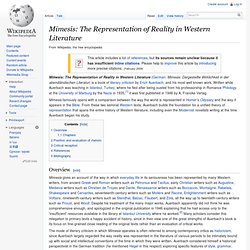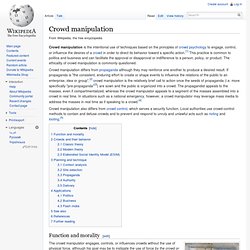

Politics and dialogue - SearchO. Politics and dialogue. THE SCAFFOLDING OF RHETORIC by Winston Churchill, 1897 « together we can change ourself. THE SCAFFOLDING OF RHETORIC by Winston Churchill, 1897 « together we can change ourself. Rhetoric. Painting depicting a lecture in a knight academy, painted by Pieter Isaacsz or Reinhold Timm for Rosenborg Castle as part of a series of seven paintings depicting the seven independent arts. This painting illustrates rhetorics. From Ancient Greece to the late 19th century, it was a central part of Western education, filling the need to train public speakers and writers to move audiences to action with arguments.[4] The word is derived from the Greek ῥητορικός (rhētorikós), "oratorical",[5] from ῥήτωρ (rhḗtōr), "public speaker",[6] related to ῥῆμα (rhêma), "that which is said or spoken, word, saying",[7] and ultimately derived from the verb ἐρῶ (erō), "say, speak".[8] Uses of rhetoric[edit] Scope of rhetoric[edit] Scholars have debated the scope of rhetoric since ancient times.
Because the ancient Greeks highly valued public political participation, rhetoric emerged as a crucial tool to influence politics. However, since the time of Aristotle, logic has changed. New rhetoric. Mimesis: The Representation of Reality in Western Literature. Mimesis: The Representation of Reality in Western Literature (German: Mimesis: Dargestellte Wirklichkeit in der abendländischen Literatur) is a book of literary criticism by Erich Auerbach, and his most well known work.

Written while Auerbach was teaching in Istanbul, Turkey, where he fled after being ousted from his professorship in Romance Philology at the University of Marburg by the Nazis in 1935,[1] it was first published in 1946 by A. Francke Verlag. Overview[edit] The mode of literary criticism in which Mimesis operates is often referred to among contemporary critics as historicism, since Auerbach largely regarded the way reality was represented in the literature of various periods to be intimately bound up with social and intellectual conventions of the time in which they were written. Auerbach was a Romance language specialist, which explains his admitted bias towards treating texts from French compared to other languages.
Chapters[edit] Position and evaluation of rhetoric[edit] Rhetoric high style. Rhetoric low style. Crowd manipulation. Crowd manipulation is the intentional use of techniques based on the principles of crowd psychology to engage, control, or influence the desires of a crowd in order to direct its behavior toward a specific action.[1] This practice is common to politics and business and can facilitate the approval or disapproval or indifference to a person, policy, or product.

The ethicality of crowd manipulation is commonly questioned. Crowd manipulation differs from propaganda although they may reinforce one another to produce a desired result. If propaganda is "the consistent, enduring effort to create or shape events to influence the relations of the public to an enterprise, idea or group",[2] crowd manipulation is the relatively brief call to action once the seeds of propaganda (i.e. more specifically "pre-propaganda"[3]) are sown and the public is organized into a crowd. Crowd manipulation also differs from crowd control, which serves a security function. Function and morality[edit] In 1968, Dr.